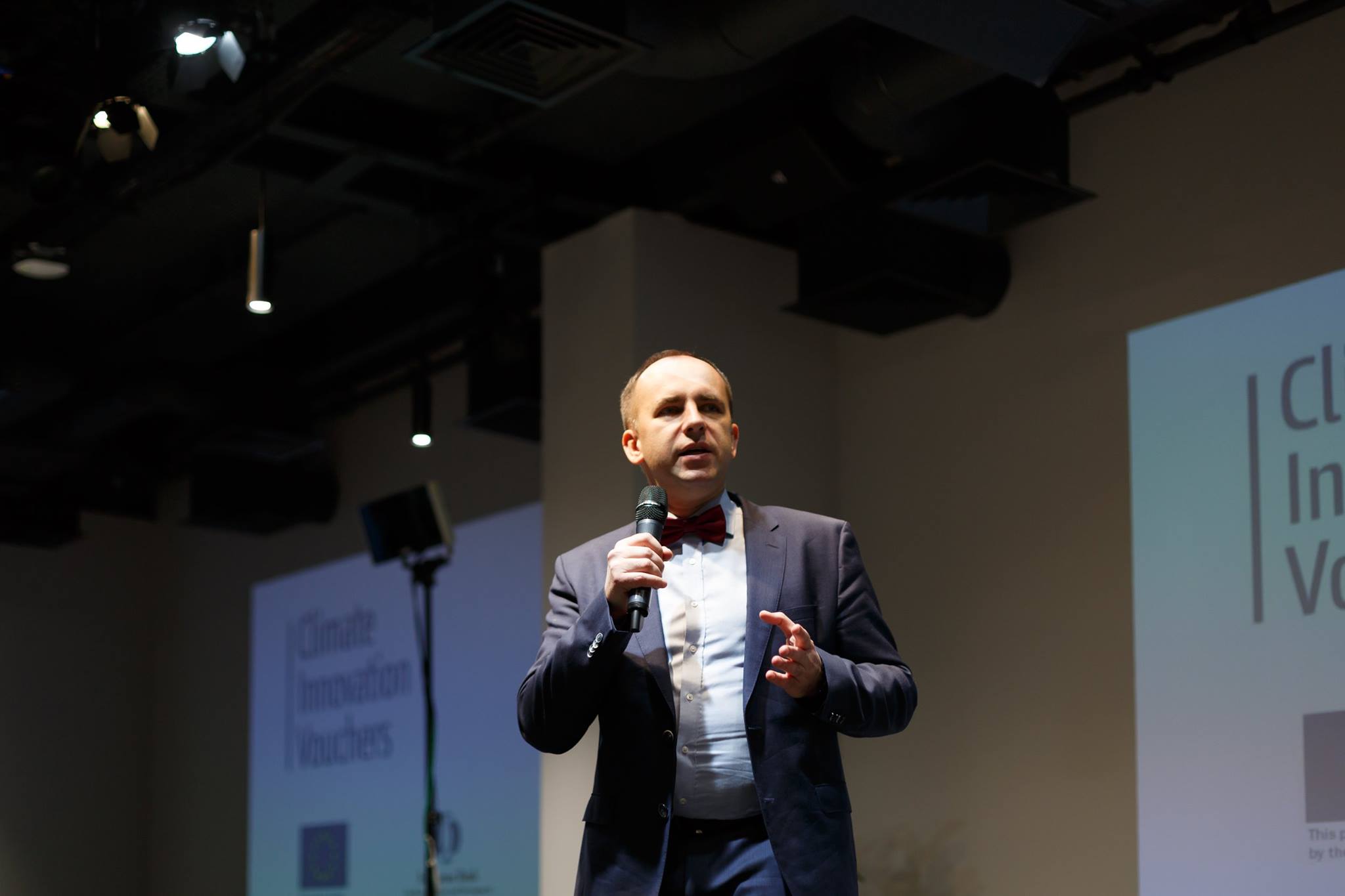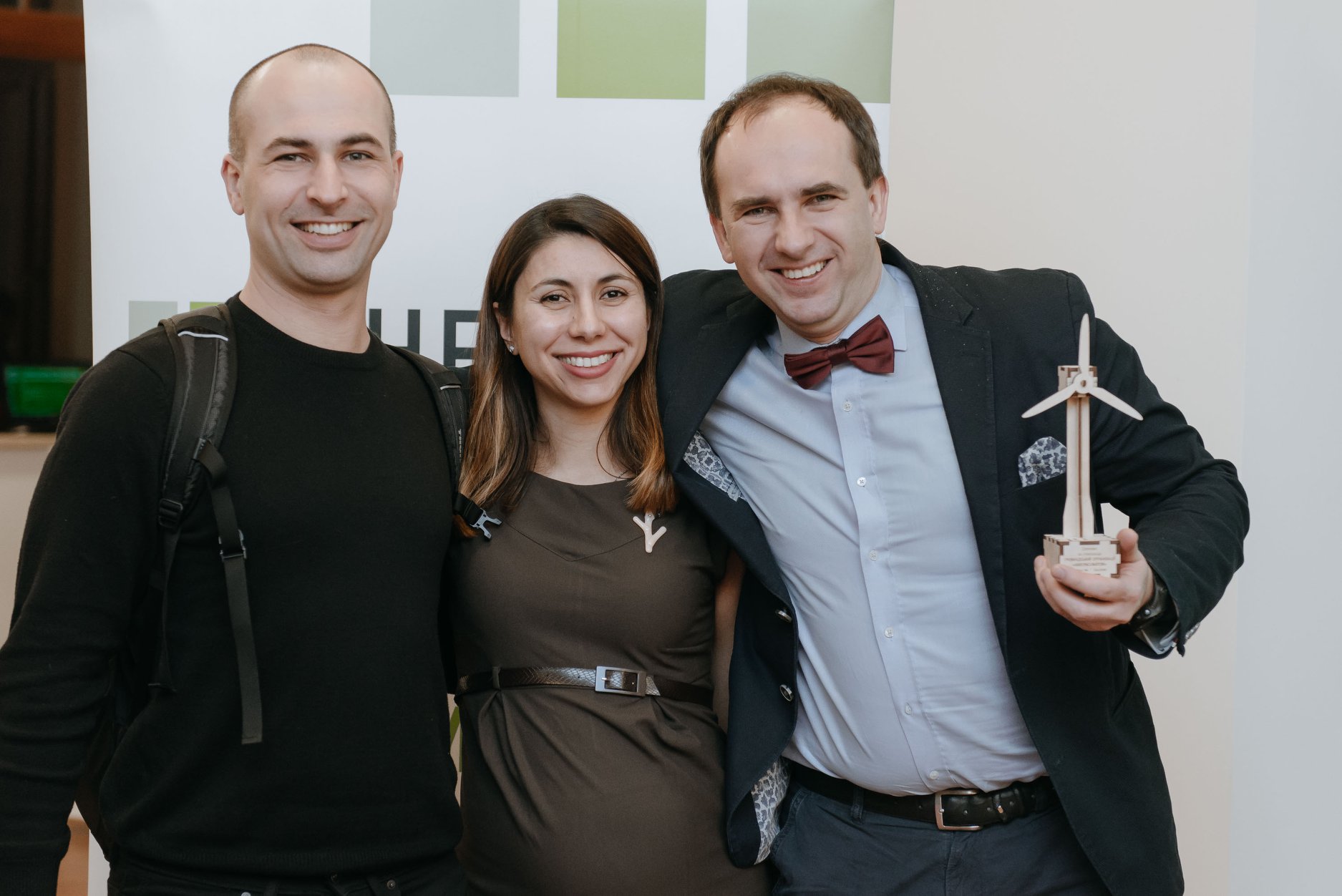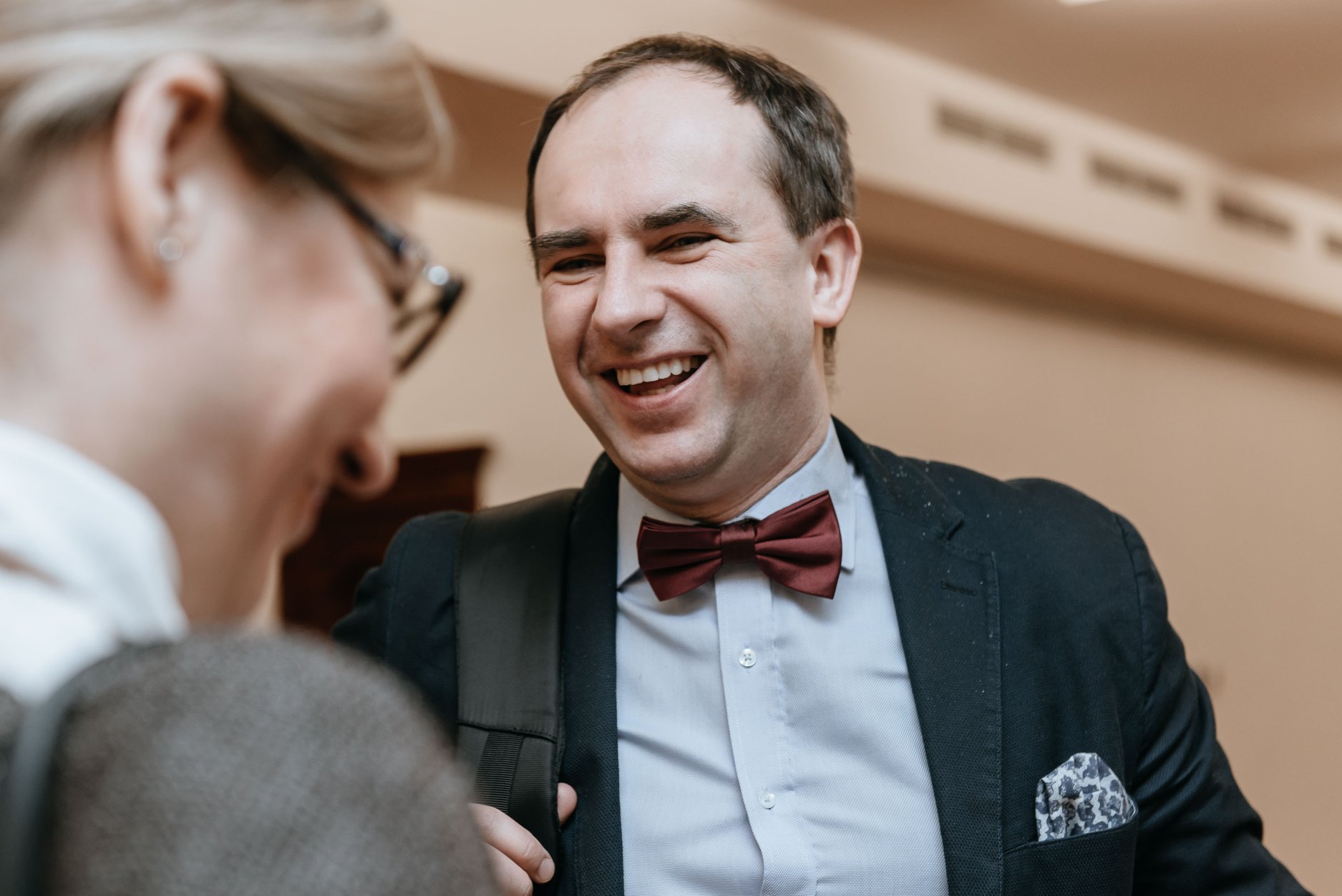If he had a magic wand, Roman Zinchenko would get rid of petrol and reduce carbon dioxide emissions to a minimum in a flash.
He doesn’t, of course. So instead of magic tricks, he promotes energy innovations with his down-to-earth not-for-profit organization Greencubator, which supports startups and businesses in Ukraine centered on renewable energy.
For nine years, Greencubator has been supporting renewable energy in Ukraine by helping startups like Delfast, a company that has just developed an electric bicycle that has a world-record range of more than 370 kilometers on one charge.
Greencubator has raised several million dollars for Delfast and other such companies, Zinchenko said.
And his attempts to popularize renewable energy innovations were internationally acclaimed in 2017 when he and his brother Andriy received the Bright Award for Environmental Sustainability from Stanford University in the United States.
The Zinchenkos are now working on something they call “Ukraine’s energy democracy.”

Renewable energy advocate Roman Zinchenko talks to the audience at UNIT.City in January in Kyiv, announcing the results of the Climate Innovation Vouchers Program, which provides startups and businesses in Ukraine centered on renewable energy with grants from the European Bank for Reconstruction and Development. (UNIT.City) (Maks Narodenko)
Soaked in corruption
It all started in 2009, when the brothers wondered why there weren’t any solar power plants in sunny places in Ukraine like Crimea.
“My brother and I wondered why renewable energy wasn’t developing, and indeed, we saw so many barriers in this sphere,” Zinchenko said in an interview with the Kyiv Post.
The brothers said Ukraine’s energy sector was so soaked in corruption that bringing in modern, green ways of generating electricity was extremely difficult.
All the same, the brothers resolved to shake the “monolith structure of corrupted energetics,” as Zinchenko put it.
They founded Greencubator to help Ukrainian green energy companies search for investment and promote themselves.
There weren’t that many companies for them to help in the beginning, Roman Zinchenko said, as the government was promoting the coal, oil and gas industries, in which many officials had vested interests.
“When we started, there were hardly any companies that required help. Green energy was something marginal and ludicrous at the time,” he said.
Instead, they tried to set an example: With their first grant of just Hr 3,000, the brothers organized the first Energy Efficient Universities Conference at Pereyaslav-Khmelnytsky State University, which was attended by people from across Ukraine.
“We couldn’t change older generation, but we could help students recognize sustainable ways of energy management,” Zinchenko said, describing why they had decided to host a conference in a university.
From then on, the Zinchenkos would hold an annual open-air renewables-powered event dedicated to the future of the energy industry, aimed at journalists and startup founders.
Later renamed Tesla Camp, the event also started hosting hackathons – events in which computer programmers and others involved in software and hardware development thrash out and implement ideas.
“People told us they were only working because of us,” Zinchenko said.

Brothers Andrij Zinchenko (L) and Roman Zinchenko (R) pose for a picture with Oksana Aliyeva, an energy policy program coordinator at Heinrich-Böll-Stiftung Ukraine on March 27. (Valentina Rostovikova) (rostovikova.com)
Looking for grants
Greencubator exists primarily on grants, which it uses in various ways: organizing conferences and training sessions, preparing and presenting projects for new green startups, and finding and supporting new ideas in this sphere.
Greencubator now has lots of partners and support from the European Union and the European Bank of Reconstruction and Development, which are interested in investing and supporting green projects in Ukraine. In particular, Greencubator works closely with EBRD to find and fund companies that reduce energy use and greenhouse gas emissions.
Apart from searching for grants and grant-takers, the Zinchenkos have already successfully lobbied for a range of legislative changes in Ukraine aimed at making the law more supportive of green-energy companies.
Educating green startups
Roman Zinchenko is also a TEDxKyiv trainer, which means he gives talks about renewable energy sources in Ukraine, teaching startups to form and pitch their ideas.
He does this partly as part of his own activities for the Kyiv and Lviv business schools, and partly for Greencubator, as the organization also teaches startups to pitch for funding.
“A huge number of Ukrainian startups fail because they can’t communicate, formulate, inform, and persuade,” Zinchenko said. “We have to change the communication culture in our country. It’s a big problem to present complicated things in simple language.”

Roman Zinchenko talks with other guests of the Heinrich-Böll-Stiftung Ukraine event on March 27 in Kyiv. (Valentina Rostovikova) (rostovikova.com)
Optimistic skeptic
Zinchenko said Ukrainian entrepreneurs are often put off by the sheer complexity of starting a business in the renewable energy sector. But he feels more would take the plunge if they just had a bit more information – and were willing to put in the work.
“I’m an optimistic skeptic. I don’t believe in prosperity as a rule – It’s the result of multifaceted efforts. Ukrainians always want to avoid the hard way, and avoid taking tough decisions. But it doesn’t work like this.”
But he does see Ukraine making progress: When he returns from abroad, he notices that a few more significant steps have indeed been taken. Ukraine just has to carry on, pressing hard to develop renewables, because this is where the future lies, Zinchenko said.
“Opening up possibilities for renewable energy will bring the kind of opportunities that the internet brought in the early 1990s,” he said.
He said Scandinavia, Canada, France, Germany, some parts of the United States, some Asian countries and Australia are the green-energy champions of the world. He wants to see Ukraine among them.
“Prosperity… is one of those things we should fight for. Ukraine should show the world what it is capable of.”
The Kyiv Post’s tech coverage is sponsored by Ciklum and NIX Solutions. The content is independent of the donors.
